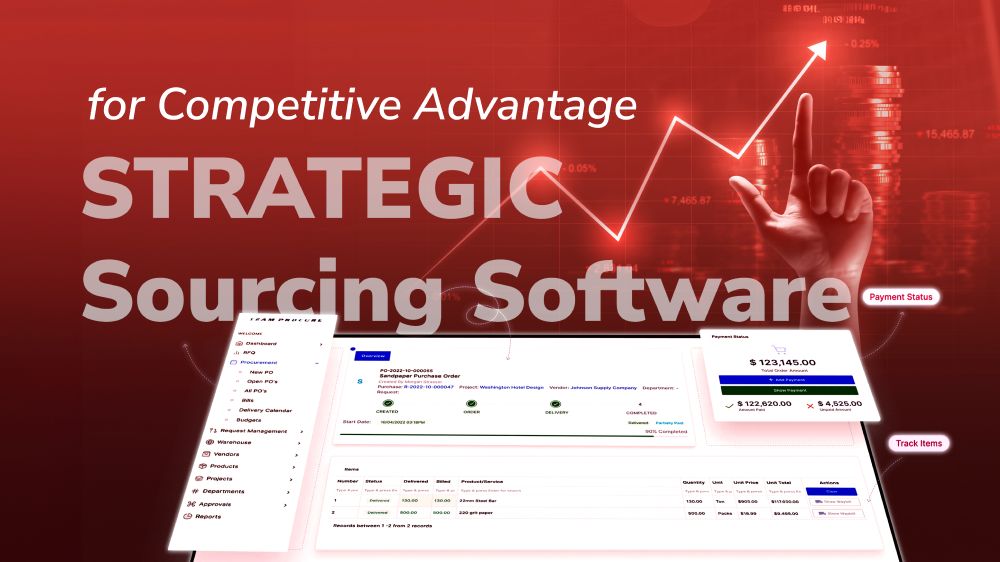Pros and Cons of IT Outsourcing: What to Expect & What to Watch Out for

Content Map
More chaptersIn today’s software development industry, outsourcing is no longer a trend as it used to be reckoned in the past years. Conversely, many businesses rely on IT outsourcing services to deal with the shortage of IT workforce as well as the insufficiency of expertise and experience, or they simply take on outsourcing as a way out of their stretched budgets or tight timeframe. According to Deloitte, businesses are anticipated to spend over $700 billion per year on IT outsourcing services by 2022, and it is projected to reach $731 billion in 2023.
Whatever the purpose, IT outsourcing has been proven to be an inevitable yet smart move for any business that seeks extra resource, productivity, and utmost quality outcomes. Indeed, outsourcing IT projects can bring several benefits to a business in both the short and long terms, but it is not without drawbacks and challenges.
What Is IT Outsourcing?
By definition, ITO, information technology outsourcing, or simply IT outsourcing, is the practice in which companies partner up with an outsourcing partner to manage a business’s IT operations, processes, and tasks. This includes activities like software development and maintenance, hardware management, help desk support, cloud computing and storage services, cyber security solutions, data analytics, etc.
Some organizations outsource their entire IT department or projects to outsourcing providers, but others can also delegate only some parts of IT operations and processes that are not core competencies of the in-house team. Meanwhile, some businesses try to patchwork outsourced consultants with their in-house teams in an effort to leverage consultants to empower their resources. As we can see, the IT needs are variable, and the IT sector has constantly been changing over time. Therefore, outsourcing services have to scale and acclimatize accordingly as well.
The umbrella term – IT outsourcing – covers different types and models categorized by the specific IT needs, goals as well as service levels, ranging from location-based outsourcing (offshore, onshore, nearshore), relationship-based (dedicated team, staff augmentation, etc.) to on-demand outsourcing (software outsourcing, QA and testing, managed IT services), knowledge-based outsourcing, and pricing models.
Advantages & Disadvantages of Working with Software Development Outsourcing Providers
Outsourcing ventures are bittersweet as there are both advantages and disadvantages that come along the way. So, it would be better if you were aware of both sides before you commit to outsourcing.
Pros
Cost-savings
In most cases, companies outsource to the intermediary as a means of saving costs, and the same goes for the IT sector. According to a survey, 69% of respondents acknowledge that cost reduction is what they are after when delegating their IT needs to service providers or hiring an outsourced team. Outsourcing IT solutions enable businesses to cut costs from different angles.
First and foremost, software development costs can be better controlled when outsourcing to third-party vendors, especially ones in offshore regions. When you collaborate with an outsourcing provider, you not only can leverage the low-cost labor pools but also can save money by moving the data centers to low-cost areas thanks to modern telecommunications technologies. Typically, it is reported that the development costs in Vietnam are 90% less than in the U.S, making the country a budget-friendly destination for IT outsourcing services. In addition, Vietnam boasts a number of other advantages over other IT locations, which are the reasons why worldwide organizations jump on the bandwagon of outsourcing to Vietnam.
Secondly, it is heaps cheaper to contract out an outsourced team than to build and run an internal team. This is the result of many factors, such as human resources, workspaces, other infrastructure management, and training. All these operating costs are transferred to the outsourcing vendor, so you can save money spent on these activities and allocate the resources somewhere else.
Last but not least, you do not have to worry about hidden costs since the budgets and services are predetermined and decided in the outsourcing contract before the project kicks off. Therefore, you only pay for what you use, and if the project’s scope changes in any way, you can negotiate with the provider and adjust the costs accordingly.
Earn the Access to a Larger Talent Pool
As mentioned earlier, the scarcity of developers causes worldwide IT businesses nerve-wracking, so they embark on IT outsourcing ventures as a solution. Only when partnering up with outsourcing firms, can you broaden your reach and tap into the global pool of IT talent, which would not be feasible otherwise. IT outsourcing enables small, middle-tier, or large companies from different parts of the world to acquire whatever expertise they need, regardless of the location.
Boost Productivity & Shorten Time-to-market
Hiring outsourced workers buffers your internal team from the tedious yet necessary tasks and allows them to focus on more value-added activities. So, the delegated tasks are completed faster, and the overall productivity of your business increases as a result.
At the same time, outsourcing can reduce lead time significantly when you need to launch a new product or service in order to have the edge over rivals before they do. With a team of professionals taking care of the development and testing processes, you can bring your product to the market faster than ever without compromising on its quality. Additionally, IT outsourcing providers apply world-class standards and efficient management practices so that you can expect the highest quality software products.
Due to contractual pressures, outsourced teams are likely to work extra hard and have the job done in a short time. Moreover, the agility of an outsourced team makes it easier for companies to adapt quickly to the market and stay competitive. Companies can move components of their development process from one provider to another without breaking a sweat when needed.
Better Flexibility & Job Security
One of the finest things about outsourcing is that you can easily adjust the team scale according to the project requirements. In other words, you can scale up your team due to heavy workloads or tight timeframes, or you can also cut down on manpower when necessary without worrying about expenses or lengthy HR processes. Furthermore, you can easily switch the team members in case of a change in project requirements or absenteeism from any side. So, IT outsourcing gives you more flexibility in management direction.
In addition, if the project ends, you can put your outsourced employees on hold or end their contracts without any hassle. This provides job security for them and helps in reducing the financial burden of companies as well.
Cons
Despite all the benefits, some concerns exist when it comes to outsourced IT services as well. Experts about IT outsourcing argue that no outsourcing company is able to match the responsiveness as well as the service levels of the in-house staff as they do not adhere to the same management direction and control as yours. Besides, some businesses fear that outsourcing can lead to data loss and security issues if the employees are not experienced or well-trained enough. Therefore, the company successfully outsourced must have been aware of the possible obstacles:
Limitations in Control
Entrusting the development team to an external party and leaving the operational details to them is a risk in itself. Although IT outsourcing firms are committed to meeting your expectations, there may be cases where you will not have as much control over the project and its deliverables as you would with an in-house team. Moreover, depending on how much control you want over the project, there is always a possibility of miscommunication and misunderstandings between you and the provider. This could lead to prolonged timelines and budget overshoots.
Lack of Intellectual Property Protection
As you are employing someone from another company and from another country, you’d better pay enormous attention to security concerns and intellectual property theft. The danger of such an event increase when the outsourced team is working on proprietary information. Thus, it’s highly recommended that you sign an agreement to gain full control over your project and have access to all intellectual property rights in case of any disputes. If your project is on copyrights or top-secret information, then outsourcing may not be an optimal option for you.
Difficulties in Communication
The language barrier and distance communication are other factors that could affect the quality of delivery. They used to be such a huge hurdle standing between you and the success of your project, but now new technological solutions have made it easier than ever to bridge cultural divides and break language barriers. In addition, having an account manager from the vendor’s side can help in proper communication and coordination without any hiccups.
Delay in Delivery
The project may be affected by unanticipated delays due to things such as political instability, natural disasters, local holidays, or other global events beyond the vendor’s control. This could lead to an increase in costs or a delay in delivery timelines. A good management practice is to keep track of all happenings and check the progress regularly with both your internal and external teams.
Sum Up

To sum up, IT outsourcing may not be a one-size-fits-all solution for companies and businesses. Careful consideration needs to be given to evaluate the pros and cons of IT outsourcing before making a decision.
IT outsourcing brings a swath of advantages to the table; however, it is undeniable that it is also implicit with certain disadvantages. In most cases, you encounter some sort of drawbacks mainly due to your choice of outsourcing service providers. Therefore, vendor selection is the ultimate key that makes or breaks the success of the entire process and outcomes. Since outsourcing is a huge investment, you’d better have a clear strategy right from the start. And if you are new to IT outsourcing, then having a guide or some useful tips will help you to choose the right outsourcing partner for your niche requirements.







